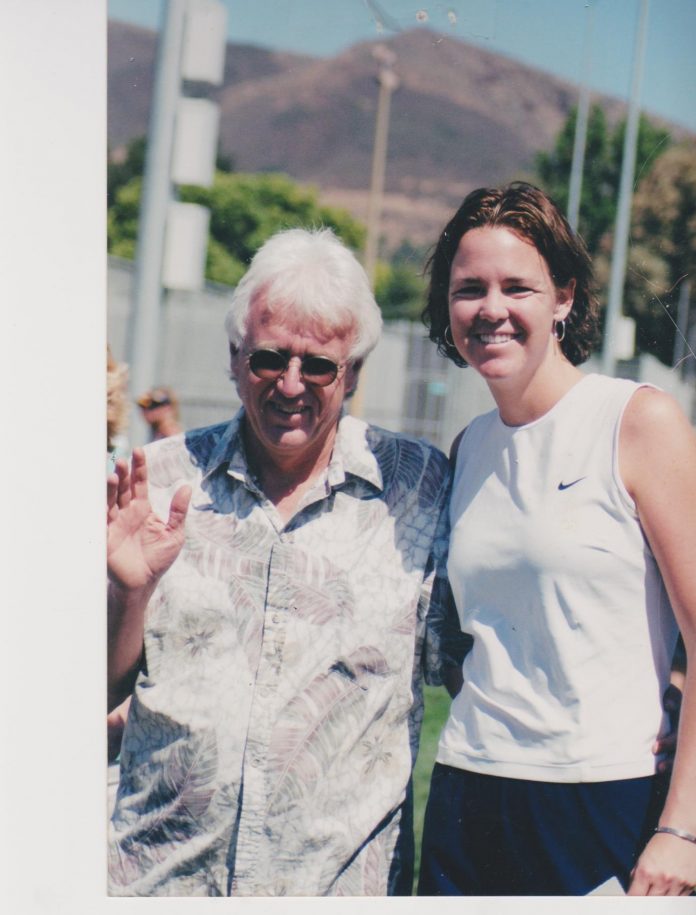I’m 72, in good health, live in a very enviable part of the world, am happily married with no debt, and am even still running a small home-based business (see hercastle.com) in cooperation with my hard working wife. I count my blessings every day–and anyone in my position certainly SHOULD. (Especially because I was once homeless–and nearly broke–in middle age. Long story). However, being a senior in your 60’s, 70’s and beyond creates a bit of a conundrum for many. Although we boomers (60+ million strong) felt the world was our oyster, the “oysters” have for the most part migrated to younger generations–the X’ers, the millennials, and even the “Zs” . I can’t kid myself that future opportunities for me and other seniors from my generation are still unlimited. If you have some disabilities, you are facing some limitations right now…
As an Aquarian with rather philanthropic instincts, I’ve always been highly motivated in improving not only my own circumstances but that of others. In recent years I’ve volunteered to help the homeless, been co-president (with my wife) of a couples dance club in my community, staged a free solar power information program based on my experience with this form of renewable energy, and presented to a local seniors group on the subject of “alternatives to assisted living” (based on the article I wrote for Seniors Lifestyle Mag).
I’m really not trying to toot my own horn, just set the stage for the subject of this piece, which is staying “relevant” and active as a senior when much of the rest of society possibly sees you as comfortably retired, semi-uninvolved, a little incapable of keeping up with the latest trends (especially technology), and with a limited lifespan (where ill health could change everything very quickly). If, that is, society sees you at ALL, except as a dependable taxpayer and shopper (haha).
And your children? If you have them, they probably certainly just want the best for you. But they’re likely too busy in their own lives to be regularly engaged. (After all, they left your “nest” long ago).
But no one can live without goals and enthusiasms, even if most of them have been already actively pursued (and likely accomplished) over a long lifetime. Yet too much comfort can breed lethargy and ennui, even depression. (I experienced serious depression as a young man even when I really had little to BE depressed about. Such a “disease” can be insidious at any age.)
Now maybe 70 IS the “new” 60–and 60 is the “new” 50–as certainly people are living longer and healthier lives. My wife, whose parents and brother both died in their 60’s, breathed a sigh of relief when she hit 70. (It is still hard for me to convince her that she could well live into her 80’s. Fortunately, she is a positive and forward looking person who shows no signs of any disability, plays tennis regularly and stays firmly in command of the logistics of our little bed and breakfast business.)
Day to day WE certainly don’t lack for things to do. And were we ever to have TOO MUCH to do (such as when we sold a second home recently), we generally know it. (THAT was beyond stressful.)
But assuming that you do sometimes wonder what you should be doing day-to-day as a senior, here are some ideas that will keep you away from the boob tube and vegetating in general..
1. Start a part-time home-based business
Ok, this is not for anyone without lots of “youthful” enthusiasm. I’m not going to say our business was a preordained conclusion in our early 50’s but I recognized hosting skills in my spouse (and I had contracting and marketing skills). I was right about both and our move to a tourist town turned out to be perfectly timed. Truth be told, both of us had had home-based businesses that imbued in us some basic principles about business–start small, avoid any unnecessary purchases, and make sure there is an obvious market for your wares or services. The social networks Nextdoor.com, Facebook, Linked In etc. are good places to test out an idea BEFORE you commit too much money and energy to one.
2. Travel inexpensively
Travel is energizing and fulfilling and few of us would give up the opportunity to go somewhere we would either like to be or haven’t been to. The sometimes deadening routine of being home bound is immediately broken. We not only run an Airbnb, we stay in them everywhere now. We bought a hybrid EV thats gets an overall 80 mpg equivalent (a Toyota Prius Prime) so traveling down the highway is at a reasonable cost. My wife checks out airline rates for non-holiday travel, picking days that are less popular and thereby cheaper. (My stepson works for the airlines and we get to go “non-rep” frequently–what a deal!). Cruising in the off season is affordable for most, especially trips to Europe. We’ve also been on low cost group tours overseas often sponsored by community groups like chambers of commerce.
3. Visit and help with the grandchildren
I admit my wife is more enthusiastic than I am about this, and she recently returned from Colorado after staying a week with the two grandkids (and a foreign exchange student!) while the main mom was away on business. I “batched” it in this case. But if you love your grandchildren–and we have 12(!) , few parents will turn down a request for you to visit them and assist. We both enjoy the younger ones, admittedly, and they CAN be a handful. We offer “date nights” for the parents and then try to spoil them. Quite frankly, if you don’t connect with your grandchildren, you can be sure they won’t connect with you as they grow into their teen and beyond years…
4. Volunteer in your community
In my town of mostly over 60 year olds volunteers seemingly run everything. Even part-time jobs are few and far between, but if, as a volunteer, one becomes open, you are more likely to get it! Being a volunteer is normally much less stressful than working for a paycheck. Of course, organizations know volunteers have no financial incentive to stay so they need to be treated well. I prefer to volunteer my time doing things that I know aren’t being offered in my community, but the sky’s the limit on what you could do–drive the community bus, participate in Rotary activities, be an aide at the local schools, help plant a community garden, assist in organizing a parade etc.
5. Learn a new sport
If you’re physically active/able, it’s never too late to take up a new sport. I began playing tennis fairly seriously in my 50’s and my skills just grew and grew from there. With a middle aged doctor’s wife I even won a local doubles tournament open to high school players. I still play but have been giving some thought to taking up golf, which my dad played in his 70’s. (He introduced me to it when I was young). I should add that a sport less arduous than tennis, but played on a tennis-type court, is pickleball. It’s the fastest growing sport in the nation for seniors. (I live two houses down from Gregg Whitfield, who is a gold medalist in the sport as an over 65 player). We also have lawn bowling.
6. Invest intelligently
Assuming you have savings and it’s earning a paltry 1-2% annually in a bank (inflation averages 3%), you’re actually losing money. But, of course, it’s perfectly safe as the FDIC insures individual accounts for up to $250.000. I inherited a brokerage account and at one point was getting up to 8% in dividends/distributions from MLP’s (Master Limited Partnerships) in the oil and gas sector. As long as the economy is expanding, as it is now, you would certainly be safe putting a portion of your savings into mutual funds that are indexed to the stock market’s growth, which has averged 9% a year figuring in even the worst recessions and the Great Depression. But it takes some nerve to be an investor, and before you jump in make sure you’ve studied hard. (Enough so that if you talk to a financial advisor or fiduciary you won’t be naive about the prospects for instant returns.).
7. Improve your home
Owning property without committing the time and funds to maintain or improve it is foolish. Repairs will need to be done eventually, especially if/when you sell it, so be proactive in identifying them. (A relative owns an out of country condo she hasn’t used in years and when we visited the ceiling in the bath had a serious leak from the floor above–months unattended to. It could have been far worse but only affected the bathroom. We have a fairly spacious ranch style home in a coastal location within a forest and there’s ALWAYS work to be done. Luckily, I’m pretty handy. (My wife threatens to hire the $80+ an hour contractor if I don’t do something she wants–that gets me going!) But generally I don’t mind as I like to work with my hands (and legs, back etc.) But plumbing, electrical, roofing and HVAC work is probably best left up to the pros.
8. Take up a new hobby
As a child I was “into” stamps and coin collecting back when valuable silver currency was still in circulation (today’s money is “fiat,” worth only what the government says it is, haha). I guess you could say my hobby today is writing these words, and online publication in this digital age holds loads of possibilities–even the occasional paycheck. Hobbies can be anything–gardening, fixing up classic cars, collecting antiques, cooking, making ceramics from greenware (I once worked for a magazine that catered to that), crafting in general, restoring furniture, hunting for thrift shop bargains, sewing etc. What is it you like to do? Can you make it into a regular hobby?
9. Join a club
In my town we have a versatile activity center called the Joslyn Center whose a membership dues are only $100 a year. My wife and I have been members of the Couples Dance Club for some time (we originally met at a singles dance party in the 90’s–and while we are still not really good dancers, I always felt we should continue being involved this way since it was the early spark in our relationship (we’re in second marriages). The Center hosts several dozen clubs such as for yoga, writers, lawn bowlers, crafters etc. If, as we age, the potential exists for becoming more isolated, being part of a club certainly counters that. Friendships can be nurtured that may even become long term.
10. Start getting your affairs in order
Ok, this isn’t too much fun but it’s necessary. We started about ten years ago, with a lawyer who drafted a living trust shortly before SHE died! (And she wasn’t older than us). The trust remains sound for the most part, so that our estate will be divided up among those family members we choose–in the portions we prefer. That’s most important to us. Less so is what happens to our remains etc. which, in my case, I hope to donate to a medical instiitution and avoid all the debates and hassles about burial vs. cremation and who’s going to pay for it. It does take time to figure all these things out, and as we grow older the trust may be subject to revisions–but at least we have it, and kin have been informed about where they can get a copy.



























